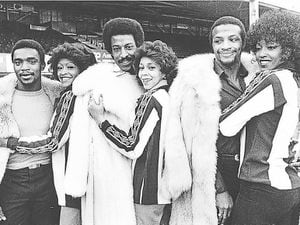Cyrille Regis remembered: An icon who was bigger than football
When Cyrille Regis was called up to the England squad, he opened up some fan mail to find a bullet in the envelope.

Accompanying it was a note: “If you put your foot on our Wembley turf you’ll get one of those through your knees.”
It’s a well-known story but one worth repeating now. Monkey chants, abuse from the stands and threats on his life, this was Regis’s everyday as a footballer.
How he dealt with this horrific abuse showed an unbelievable strength of character. He never rose to it, never reacted and simply let his football do the talking.
By ignoring the racists, he refused to give their hatred oxygen, refused to let them win.
It hurt, of course it did, but Regis channelled his anger into his on-field performances, and all the while the bigots were left wondering why he didn’t respond, robbed of any satisfaction.
“I decided pretty quickly how I was going to deal with it,” he said, in 2010. “You wonder how you can hurt them and the best way is by channelling all your anger into playing even better.
“It’s like you’re saying, ‘I’m going to show you who I am by putting the ball in the back of your net. I’m going to smash you and take the points’.
“I wasn’t going to let any bigots get in the way of my dream. It was the best possible answer.”
That approach meant the bullet was kept as a motivational tool, a reminder.
It spurred him on to greater things and, looking back, it’s a wonder why a striker of his prowess only received five England caps.
Regis realised what racism was pretty early on in his career – cowardice and insecurity, and he treated it as such.
“Throughout all those years, no-one had actually confronted me in the street and punched me in the face, so why would this person be any different?” he said.
“It was cowardice, sheer cowardice and I just thought, ‘You muppet. Do you really think you are going to stop me pulling on an England shirt?’ I was angry but, as ever, it drove me on to show them how good I was.”
If you want an idea of how much he impacted the game, simply read the dozens of emotional tributes made by black footballers yesterday.
Stan Collymore called him a ‘pioneer’ and thanked him for leading the way, Andy Cole described him as a ‘hero’ and the reason he wanted to play football, Dion Dublin echoed those sentiments, and Mark Bright said: “He blazed a trail for every black player who followed him, an inspiration to myself and many players of my era.”
They are just four picked out of an avalanche of kind words said and written about the gentle giant who changed the face of British football to one that multi-cultural.
But Regis transcended the sport and affected society as a whole.
When he was coming through with the likes of Laurie Cunningham and Brendon Batson at Albion, as well as George Berry and Bob Hazell at Wolves, the far-right National Front party was enjoying an ugly rise in prominence.
Football is such a large portion of British culture that it’s not outrageous to argue The Three Degrees helped improve race relations in the whole country by breaking down barriers in the national game.
Regis was arguably the de facto talisman of that trio, because he was the No.9 and the focal point of the team.
Humble to the end, he would have argued that was overstating it, but there’s no doubt he was a catalyst for social change.
It wasn’t just people from the world of football who paid tribute to him yesterday, and the variety of people whose lives were touched by Regis is telling.
Whether it was West Indies cricketer Brian Lara thanking him for ‘creating a better future for us all’ or Labour leader Jeremy Corbyn arguing he ‘changed attitudes on the terraces and in society’, it’s clear to see Regis was more than just a footballer.
He became a football agent in retirement, and had been handing down sage advice to countless youngsters ever since, black and white.
At the start of his agency career, many of the black footballers he helped, like nephew Jason Roberts, were directly inspired to get into the game by him.
Those youngsters coming through nowadays may not have been wholly aware of what Regis did for them until yesterday, but now they are.
As for dealing with racism, let’s leave the final word on it to the man himself.
“To judge someone by the colour of their skin shows fear and insecurity about who you are. Thank God we knew who we were.”





